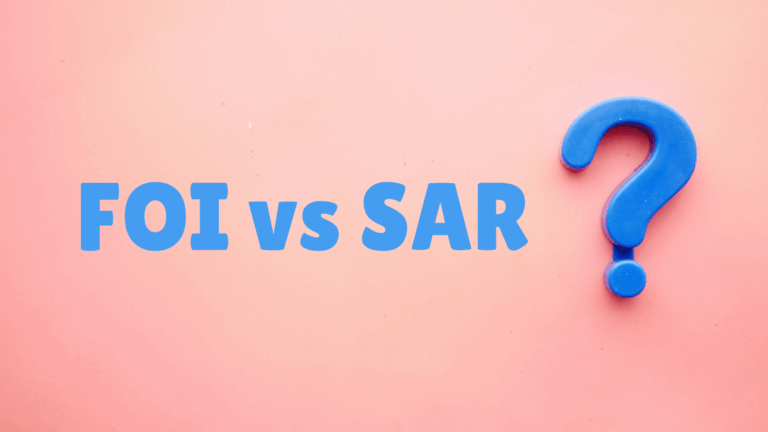Christmas is coming, so I am expecting a plethora of posts to appear on my social media – winter getaways, family gatherings, fancy meals, Christmas parties… you know the type. Every year I see countless online diaries of what people get up to during the ‘festive season’, even more than is common throughout the year. Yet every year, this little voice in my head is screaming at the amount of over-sharing going on. I really have to stop myself from being in ‘work mode’ whilst browsing on personal accounts.
“What’s the problem?” I hear you say.
Part of the problem is that not enough people know the problem. I have people on my own Facebook friends list that I haven’t spoken to since school. In fact I couldn’t be certain I would recognise them in the street. Despite this, I could track where they eat, their relationship status (Christmas engagement anyone?), where their work Christmas party was, and then by default, who their colleagues are, where they work… plus the other usual admissions. Where you went on that last minute weekend away, what the children got from Santa… the list goes on.
Are we sharing too much online?
I get it; I sound paranoid, like Scrooge, or whatever you want to call it. But I can’t be the only one that notices the risks that come with constant sharing online.
The problem is, I don’t think many people do recognise those risks. I remember showing a friend how metadata works a few years back, and watching her face as she suddenly realised that the photos she’s happily shared online included geolocation information. You could physically see the light bulb moment, the realisation of just how much information she was unknowingly sharing.
And that is just the start of the problem.
The lack of education, and the almost non-existent awareness of how the internet truly ‘works’ is a big enough issue amongst adults, but more and more children are being thrown into the mix.
As social media platforms have become integral to our daily lives, many parents, relatives, and friends share moments captured on camera, children are increasingly featured in online photos, from family gatherings to holiday posts, and ‘first day at school’ type updates. However, techniques such as photo tagging and facial recognition raise important ethical questions—especially when the children in those photos are too young to give consent or even fully understand the implications of their digital footprint.

The Ethical Issue
When a parent, family member, or friend posts a picture of a child online, social media platforms like Facebook and Instagram often use facial recognition technology to suggest ‘tagging’. While this can help families stay connected by labelling individuals in photos, it also raises questions about the right to privacy for children.
Informed Consent
Children cannot provide informed consent for the photos that are shared of them, and they may not be aware of the long-term consequences of having their faces widely available online. Children often have a substantial digital footprint before they even have access to social media.
Data Collection
Once tagged, the image of a child, along with its associated metadata, becomes part of a vast digital ecosystem. This data can be collected, stored, and used by tech companies for purposes beyond the individual’s control or knowledge.
Potential for Exploitation
Kids don’t have the ability to manage or understand how their image might be used, from targeted ads to potential exploitation, or even face-matching for surveillance purposes.
I could go on.
I would recommend watching this video by Deutsche Telekom, as it perfectly highlights how modern technology is presenting more and more risks, and just how easily what might seem like a harmless post could actually go wrong.
The Fix
The question then becomes, ‘who holds responsibility?’ Should parents/guardians be more cautious when posting photos of children, or themselves, online? Do they have an ethical obligation to protect their children’s privacy? Moreover, what role should social media platforms and tech companies play in safeguarding children’s data, especially biometric data?
Parents need to balance the fun of sharing these moments with the ethical responsibility of protecting children’s future, alongside protecting their own privacy too. While it’s natural to share milestones like birthdays and school events, parents should be aware that sharing images of their children can have risks.
There is clearly a space for tech companies to be doing more. In a world where data is such a valuable asset, though, I can’t imagine many of the big players will take a particularly ethical stance anytime soon. We are back in that standard ‘just because you can, doesn’t mean you should’ perpetual cycle – social media platforms are already doing too much of what they ‘can’ for us to expect them to do anything differently.

What can you do?
Well, a surprising amount, actually! I wrote about this previously – in fact, in a relatively similar post – containing some helpful and actionable information.
So, next time you think about posting online, think: do you really need/want to share it?
If the answer is a resounding yes, then make sure your privacy settings are utilised, ensure that only ‘friends’ can view posts (providing you actually know who is on your friends list), minimise the details in posts (for example, you don’t need to tag a location). Try to leave out key information, like where your children go to school, or the time and place of football training or dance class. Think about how that post will ‘age’. Yes, we all love to laugh at funny photos from the past, but consider the more negative implications too.
You can read a pretty interesting article from the BBC here that reports some key statistics. It also links a couple of important reports from Ofcom and NSPCC.
Need some support? Give DPAS a call.
If you are an organisation that wants to improve its information security knowledge, or is unsure of how to educate the workforce on online security, get in touch with the DPAS team. Through the help from our experts, your business will achieve its goals.
If you could use some help in this area, take a minute to browse the services we offer, or click here to explore our list of training courses.

Is the convenience worth the trade-off?
So, whilst lots of free apps are convenient, and the social ‘norm’ now, the hidden price you pay is often your privacy. By becoming more aware of how companies collect and monetise your data, you can take steps to protect yourself without giving up the benefits of these platforms.
As the saying goes, “If you’re not paying for the product, you are the product.” The more conscious you are of the trade-offs involved, the better equipped you’ll be to make informed decisions about the apps and services you use.
So, the next time you download an app, take a moment to think – is the convenience worth the trade-off?





